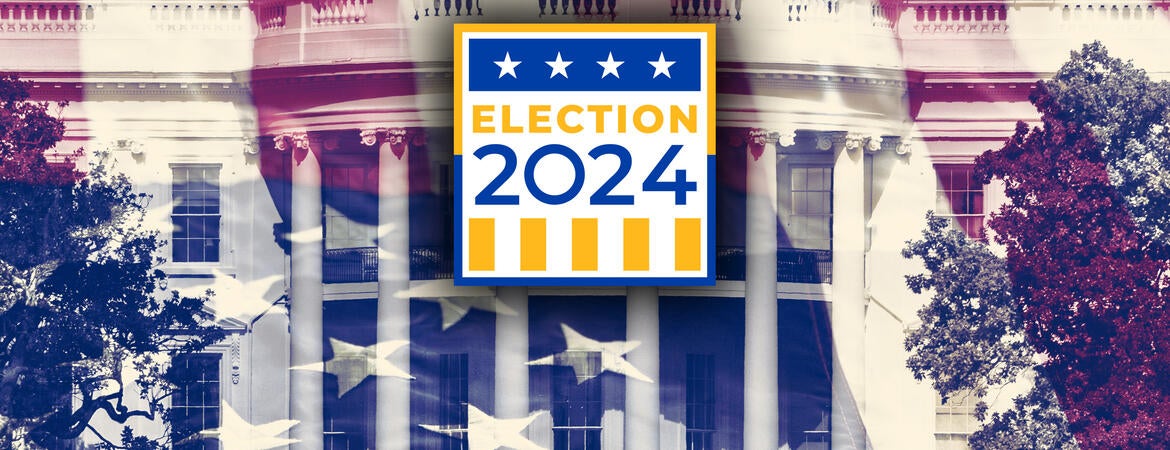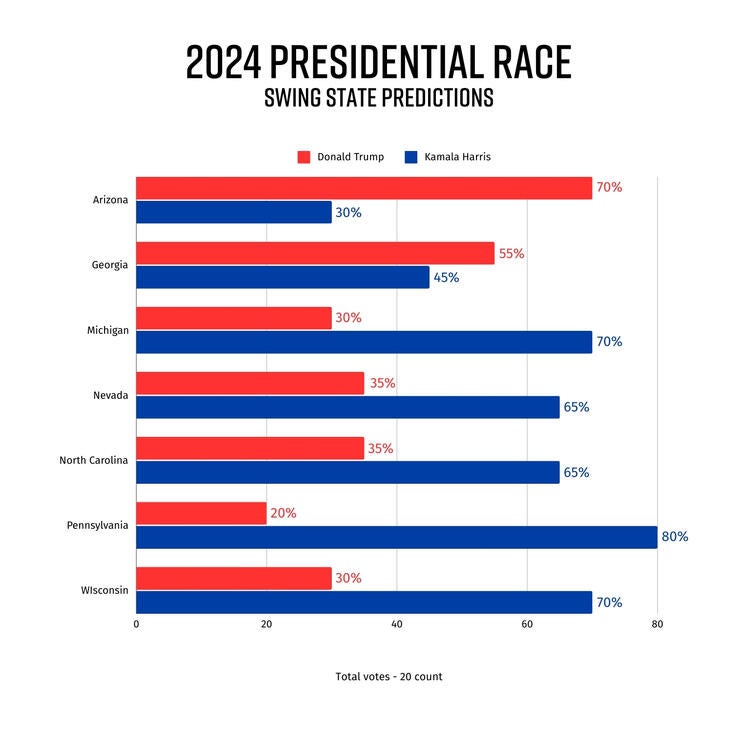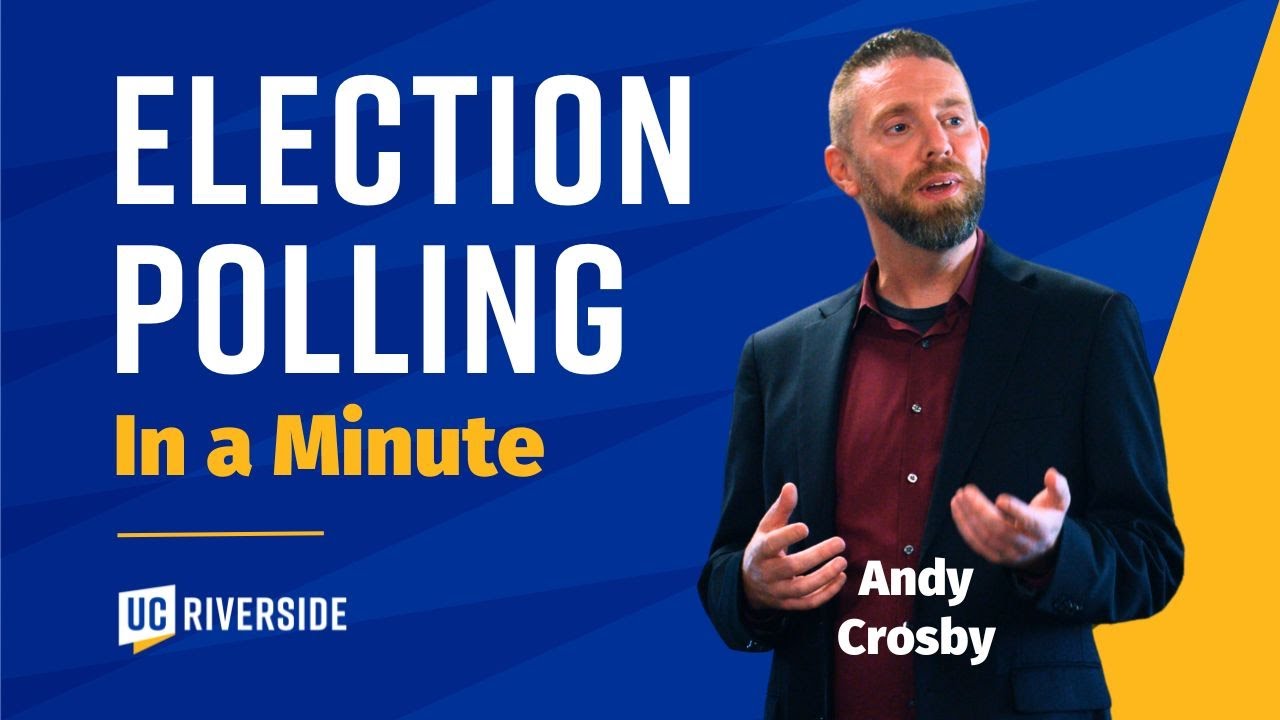
Surveyed professors at UC Riverside predict Kamala Harris will prevail in five of seven battleground states, according to a straw poll conducted by UCR’s news team beginning October 25.
The poll considered the swing states of Arizona, Georgia, Michigan, Nevada, North Carolina, Pennsylvania, and Wisconsin. The email survey was conducted using the platform Qualtrics and was mailed to 161 social science faculty members within the College of Humanities, Arts, and Social Sciences and in the School of Public Policy. There were 20 respondents.
In addition to being polled on the swing states, the faculty members were asked whether the 2024 cycle is harder to predict than the 2020 election. Fourteen of 19 who responded to that question said it is more difficult, three said it’s easier, and two said it’s about the same.
“Approaching the 2020 election, Biden was ahead by a considerably larger amount than what we see for either candidate in 2024,” said Andy Crosby, a UCR political scientist and polling expert. “For example, the final national Ipsos/Reuters poll of 2020 showed Biden +7 points. By comparison, the just-released final New York Times/Siena College poll of this season shows a 48-48% tie — quite literally a dead heat.”
Of the seven swing states, faculty members in the UCR poll chose Harris for five: Michigan, Nevada, North Carolina, Pennsylvania, and Wisconsin. They chose Donald Trump for Georgia by a slim margin and — by a wide margin — predicted a Trump win in Arizona.
If those predictions are correct, and the predictably red states vote red and the blue states vote blue, Harris would win 292 electoral college votes to Trump’s 246. A total of 270 is needed to win the election.
“It looks like we are following Harris’s ‘blue wall’ strategy,” UCR political scientist Shaun Bowler said of the UCR straw poll results. “The surest road to the White House for her involves Michigan, Wisconsin, and Pennsylvania, and that’s where her campaign has made a lot of efforts.”
Bowler suggested North Carolina, which voted Trump in 2020, may tip to Harris this cycle because of an unpopular GOP candidate for governor in the state. “(Mark) Robinson is so troubled that he will drag down the GOP vote,” Bowler said.
The UCR faculty respondents’ sentiment that Trump will claim Arizona and its 11 electoral votes mirrors findings from national polls. Democrat Joe Biden won Arizona in 2020.
“The top two issues identified by likely voters in Arizona when asked to pick their single=most important issue in deciding their vote are the economy and immigration, and Trump is viewed as the candidate who would do a better job on both issues,” Crosby said.
Crosby pointed to an Oct. 7-10 New York Times/Siena College poll of Arizona. When likely voters were asked which candidate would handle the economy better — regardless of who they planned to vote for — 56% of respondents indicated Trump, compared to 41% of respondents for Harris. On immigration, Trump had the edge by 55% to 42%.
“Arizonans see themselves as ground zero for immigration and they are very receptive to a hard line on that issue,” Bowler said.
A similar poll of UCR social scientists was conducted for the 2020 presidential cycle. In 2020, UCR social scientists predicted Democrat Joe Biden would win six of the seven battleground states. Those states included Arizona, Michigan, Minnesota, North Carolina, Pennsylvania, Wisconsin and — by a slim margin — Florida. The 11 respondents called Georgia for Trump.
They were right on Arizona, Michigan, Minnesota, Pennsylvania, and Wisconsin, but missed on North Carolina and Florida, which went for Trump, and Georgia, which went for Biden.
The UCR News poll is a nonscientific one, including because of its small sample size. Social sciences departments range in their intersections with national politics; the 12% response rate may represent some degree of self-selection. And most faculty in the social sciences identify with the Democratic party, according to research.
As the November 5 election day closes in, Crosby said he will be watching polls that use probability, or random, sampling and that are conducted by members of the AAPOR Transparency Initiative. Those polls include New York Times/Siena College; ABC News, and Ipsos.





